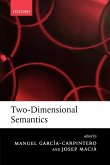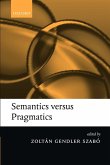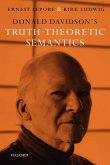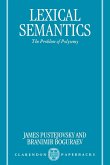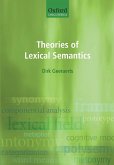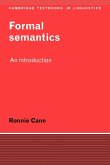"Minimal Semantics" provides a detailed examination of this dual pragmatic position, introducing readers who are unfamiliar with the topic to key ideas like relevance theory and contextualism, and looking in detail at where these accounts diverge from the formal approach. Borg's defence of formal semantics has two main parts: first, she argues that the formal approach is most naturally compatible with an important and well-grounded psychological theory, namely the Fodorian modular picture of the mind. Then she argues that the main arguments adduced by dual pragmatists against formal semantics - concerning apparent contextual intrusions into semantic content - can in fact be countered by a formal theory. The defence holds, however, only if we are sensitive to the proper conditions of success for a semantic theory. Specifically, we should reject a range of onerous constraints on semantic theorizing (e.g., that it resolve epistemic or metaphysical questions, or that it explain our communicative skills). So Borg's answer to the question of what a semantic theory is for has a particular, minimal slant.
Minimal Semantics asks what a theory of literal linguistic meaning is for--if you were to be given a working theory of meaning for a language right now, what would you be able to do with it? Emma Borg sets out to defend a formal approach to semantic theorizing from a relatively new type of opponent--advocates of what she calls "dual pragmatics." According to dual pragmatists, rich pragmatic processes play two distinct roles in linguistic comprehension: as well as operating in a post-semantic capacity to determine the implicatures of an utterance, they also operate prior to the determination of truth-conditional content for a sentence. That is to say, they have an integral role to play within what is usually thought of as the semantic realm. Borg believes dual pragmatic accounts constitute the strongest contemporary challenge to standard formal approaches to semantics since they challenge the formal theorist to show not merely that there is some role for formal processes on route to determination of semantic content, but that such processes are sufficient for determining content. Minimal Semantics provides a detailed examination of this school of thought, introducing readers who are unfamiliar with the topic to key ideas like relevance theory and contextualism, and looking in detail at where these accounts diverge from the formal approach. Borg's defense of formal semantics has two main parts: first, she argues that the formal approach is most naturally compatible with an important and well-grounded psychological theory, namely the Fodorian modular picture of the mind. Then she argues that the main arguments adduced by dual pragmatists against formalsemantics--concerning apparent contextual intrusions into semantic content--can in fact be countered by a formal theory. The defense holds, however, only if we are sensitive to the proper conditions of success for a semantic theory. Specifically, we should reject a range of onerous
Hinweis: Dieser Artikel kann nur an eine deutsche Lieferadresse ausgeliefert werden.
Minimal Semantics asks what a theory of literal linguistic meaning is for--if you were to be given a working theory of meaning for a language right now, what would you be able to do with it? Emma Borg sets out to defend a formal approach to semantic theorizing from a relatively new type of opponent--advocates of what she calls "dual pragmatics." According to dual pragmatists, rich pragmatic processes play two distinct roles in linguistic comprehension: as well as operating in a post-semantic capacity to determine the implicatures of an utterance, they also operate prior to the determination of truth-conditional content for a sentence. That is to say, they have an integral role to play within what is usually thought of as the semantic realm. Borg believes dual pragmatic accounts constitute the strongest contemporary challenge to standard formal approaches to semantics since they challenge the formal theorist to show not merely that there is some role for formal processes on route to determination of semantic content, but that such processes are sufficient for determining content. Minimal Semantics provides a detailed examination of this school of thought, introducing readers who are unfamiliar with the topic to key ideas like relevance theory and contextualism, and looking in detail at where these accounts diverge from the formal approach. Borg's defense of formal semantics has two main parts: first, she argues that the formal approach is most naturally compatible with an important and well-grounded psychological theory, namely the Fodorian modular picture of the mind. Then she argues that the main arguments adduced by dual pragmatists against formalsemantics--concerning apparent contextual intrusions into semantic content--can in fact be countered by a formal theory. The defense holds, however, only if we are sensitive to the proper conditions of success for a semantic theory. Specifically, we should reject a range of onerous
Hinweis: Dieser Artikel kann nur an eine deutsche Lieferadresse ausgeliefert werden.


